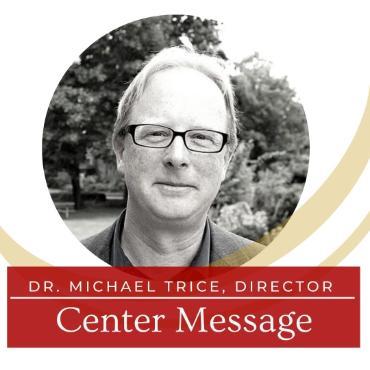No Caption Provided
May 3, 2022
Listening for Community and Family

In the month of May, we are listening for community and family as you’ll see below. CEIE Director and Spehar-Halligan Professor, Dr. Michael Trice, reflects on the path forward for the Center.
Welcome. This new Center for Ecumenical and Interreligious Engagement at Seattle University – CEIE - where I’m sitting now in Hunthausen Hall, began on July 1, 2021. It draws deeply from the ecumenical heritage and religious wisdom so important to the individuals, families and faith communities who have historically supported Seattle University’s School of Theology and Ministry, who have been shaped in these halls and on this campus, and whose presence here continues.
Joined by friends, students, alumni, advisory councils, and neighbors, this Center is a gathering place for learning and equipping for service in our communities and in the world.
Knowing these realities, these leaders have gathered with us this year as we asked good questions … listened … and learned … and we built the supports that are necessary for what comes next.
And here is what excites me about what is coming next: This Center recently received permission to create certificate programs that are non-credit bearing at Seattle University. Yes, the Center will be a place of learning through in-person and online courses and a Summer Institute. In the next two years, we will be constructing a certificate program in spiritual direction. That’s our first certificate coming. We are currently considering a certificate in social justice that centers the margins that is mindful and heartful of bIPOC communities, the trans community and other vulnerable populations and identities.
We are also committed to developing cohort-based learning to provide educational modules for whole leadership teams within communities of faith. We will be working with colleagues in and around Seattle University for developing courses to assist those in specialized community leadership, such as chaplains and hospice workers, who have served as frontline spiritual-leaders through the pandemic with its surplus of grief and lack of ritual for mourning. And … we all know about the strain of these past two years for those who are leading community organizations and places of faith and action. We see assisting these leaders as part of the Center’s sacred calling.
I’m Michael Trice and I serve alongside a leadership team as the Spehar-Halligan Professor and founding Director of the Center for Ecumenical and Interreligious Engagement at Seattle University.
What continues from here requires all of us, and I welcome your participation.
Thank you,
Michael Reid Trice, PhD
Spehar-Halligan Professor and Director
Center for Ecumenical and Interreligious Engagement
School of Theology and Ministry
Seattle University


.png)